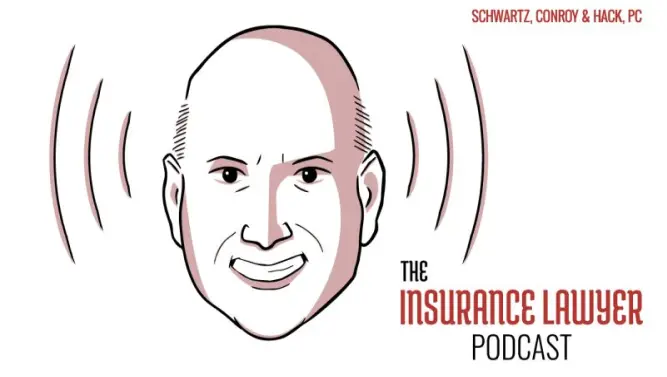Firm partners Evan Schwartz and Matt Conroy discuss some of the basics of understanding how Professional Liability Insurance Coverage work and the key parts of policies to pay attention to when filing a claim.
Podcast Show Notes
In this episode of the Insurance Lawyer, host Evan Schwartz discusses professional liability insurance coverage with firm partner, Matt Conroy. Professional liability insurance coverage is coverage for people that are believed to have made errors in client services – meaning, someone is filing a claim against someone who has made an error. Sometimes, within a legal context, this is known as legal malpractice.
There are many different types of professional liability insurance, such as legal malpractice insurance, medical malpractice insurance, employment practices liability insurance, and directors and officers liability insurance, along with many more.
Most professional liability insurance policies are claims-made coverage, meaning the coverage term depends on when the claim is made. This is the more popular option because the premiums are lower and they exclude acts that happened in the past. There are also are occurrence-based policies, in which the coverage is based upon when the act of negligence was committed.
Regardless of the policy type, one thing to keep in mind is when you should tell your insurance company about a claim or a potential claim. Some insurance companies need to be notified about the claim within the policy year period (January 1st to December 31st.) If you are debating whether to report a potential claim to your insurance company, one indicator is when a former client demands money or services from you, relating to their claim. Or, if you believe that a former client is going to assert a claim against you, alert your carrier and they will develop defenses to the potential claim, then you must report it to your insurance as a potential claim.
Takeaway
Professional liability insurance can come in many forms, but the general basis is that someone files a claim against someone who has made some sort of error in their case.
Most professional liability insurance policies are claims-made coverage that depend on when the claim was reported to the insurance company. Keep in mind that you must report a claim to your insurance company when a former client is demanding money, services or information based upon their claim, from you.
